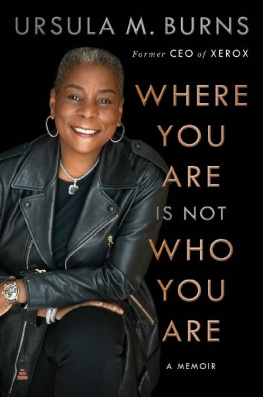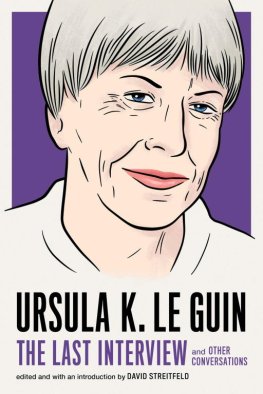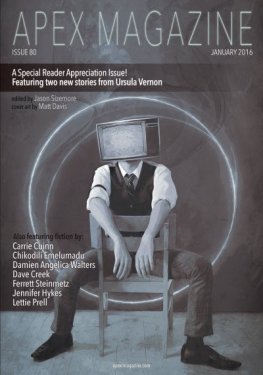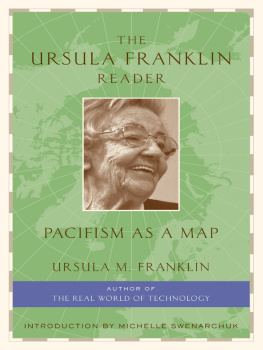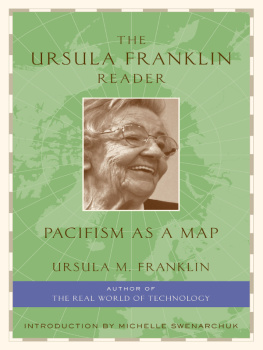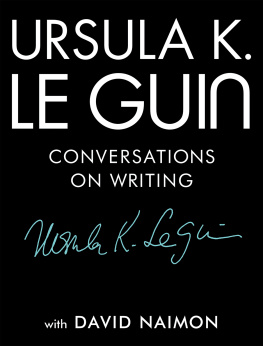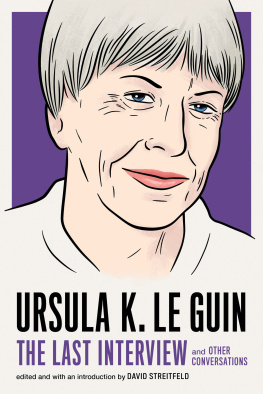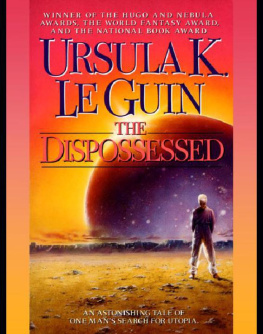Ursula Burns - Where You Are Is Not Who You Are
Here you can read online Ursula Burns - Where You Are Is Not Who You Are full text of the book (entire story) in english for free. Download pdf and epub, get meaning, cover and reviews about this ebook. year: 2021, publisher: HarperCollins, genre: Home and family. Description of the work, (preface) as well as reviews are available. Best literature library LitArk.com created for fans of good reading and offers a wide selection of genres:
Romance novel
Science fiction
Adventure
Detective
Science
History
Home and family
Prose
Art
Politics
Computer
Non-fiction
Religion
Business
Children
Humor
Choose a favorite category and find really read worthwhile books. Enjoy immersion in the world of imagination, feel the emotions of the characters or learn something new for yourself, make an fascinating discovery.
- Book:Where You Are Is Not Who You Are
- Author:
- Publisher:HarperCollins
- Genre:
- Year:2021
- Rating:5 / 5
- Favourites:Add to favourites
- Your mark:
- 100
- 1
- 2
- 3
- 4
- 5
Where You Are Is Not Who You Are: summary, description and annotation
We offer to read an annotation, description, summary or preface (depends on what the author of the book "Where You Are Is Not Who You Are" wrote himself). If you haven't found the necessary information about the book — write in the comments, we will try to find it.
Where You Are Is Not Who You Are — read online for free the complete book (whole text) full work
Below is the text of the book, divided by pages. System saving the place of the last page read, allows you to conveniently read the book "Where You Are Is Not Who You Are" online for free, without having to search again every time where you left off. Put a bookmark, and you can go to the page where you finished reading at any time.
Font size:
Interval:
Bookmark:
To
Olga Racquel Burnsmy rock, a true superwoman
And
Lloyd Fitzgerald Stuart Bean
my love, exactly who and what I needed
And
Malcolm Khalil Moore Bean and Melissa Racquel Bean
the greatest gifts I have ever received
I am the one thing in life I can control
I am inimitable
H AMILTON : A N A MERICAN M USICAL
I started writing this book well before the world as we knew it changed. Pre-pandemic and presocial justice reawakening and prethe end of the darkest four years in my life. I finally responded to the encouragementsYou have to write a bookI received after speaking engagements and conversations. I must say that writing this book has been much, much harder than I thought it would be. Not only because of the before-and-after situation that we are still in the midst of, but also because it is hard for me to find a lot that is truly remarkable or book-worthy about my story. I am not being humble in that statementthe fact of the matter is that life happens one day at a time, and only in the retelling does it come together into remarkable, exciting, or insightful stories. In other words, you live your life not knowing the end of the story, and retell it only as if you knew what the outcome would be.
In this book I hope you see that good things can and do happen. I hope you see how much of a positive impact one person who is neither rich nor famous can have on the world. I hope you see that hard work, belief in yourself, and support by good people are the magic sauce.
As of this writing, the pandemic is still here, social justice is awakening, and post-Trump America is in inning number one, but I am optimistic about America and the world. As I love to say, the USA is not a zero-sum nation. Ive seen over and over that it is not necessary for someone else to lose in order for me to win. Someone doesnt have to starve for me to eat; someone doesnt have to go without health care or an education for me to have them. America, the world is not playing a zero-sum game. I am optimistic.
There was a huge uproar in the press in July 2009 when I was appointed chief executive officer of Xerox: the headlines proclaimed that I was the first Black woman to lead a Fortune 500 company and that for the first time the CEO mantle had been passed from one woman, Anne Mulcahy, the outgoing CEO, to another. What a ridiculous way to make history. Though both headlines were factually correct, the press missed what was a unique story: How did this happen? How is it that the Xerox Corporation had two female CEOs, one after another? How did the Xerox Corporation produce the first African American woman CEO? That should have been the conversation, not these ridiculous stories proclaiming, Oh my god, not one but two women and Oh my god, a Black woman made it. Was it truly so amazing to think a Black woman could lead a multibillion-dollar company? I had worked at Xerox for twenty-nine years by then. I had a strong track record. I was very well educated. I hadnt been plucked from a circus sideshow. I had earned the position.
In that instant, I joined the top five hundred business leaders in the United States out of a population of 306.8 million. That is 0.000163 percent of the total population. And the repercussions were immediate. I got congratulatory calls or emails from at least a hundred other CEOs and from high-profile African Americans. I heard from my good friend and mentor Vernon Jordan, the corporate titan and adviser to President Clinton, and from Ken Chenault, the chairman and CEO of American Express, on whose board I sat. I also received congratulations from many others I didnt know, like the civil rights leaders Al Sharpton and Jesse Jackson and the basketball legend Magic Johnson, himself the CEO of the $1 billion Magic Johnson Enterprises. I got phone calls from US senators and members of Congress, and practically every company and nonprofit in the country asked me to join their boards. How many commencement addresses was I asked to make? How many speaking engagements? How many media interviews? My teenage daughter, Melissa, was unimpressed. The phones for you, she told me that night. I think its a newspaper or something.
The enormous amount of attention continued for days. I was at our home in Rochester, a midsize city in upstate New York and the manufacturing and engineering headquarters for Xerox at that time. Everyone knew everyone else, so there were smiles and congratulations on the street and in the grocery store and in the dry cleaners every time I left the house. There were paparazzi too. It was impossible for me to be unaffected. Id made it. Id arrived. I felt terrific but also apprehensive. I was not becoming the CEO of Apple. I was becoming the CEO of Xerox, which had gone through two or three near-death experiences by then. The company had to be led, to be managed, to be strengthened, and it was not going to be an easy ride. Xerox needed a lot of work, and I quickly returned to the companys nondescript executive headquarters in Norwalk, Connecticut.
There was no lavish suite of offices and anterooms waiting for me, no special floor with private dining rooms, no moving from floor A to a fancier floor B, as so many corporations offer their top executives. That was not the way it was at Xerox, and I liked that egalitarian modesty. I returned to my old office where Id worked for two years as president of Xerox, kitty-corner to the office Anne had used as CEO. Both our offices were larger than the others in the unremarkable and inexpensive four-floor building Xerox rented as our corporate headquarters, and each had a perka private bathroom, one with a shower. There were very few other Xerox executives in that building. The majority of the companys leadership lived in the field. The head of research and development lived in Rochester, as did the executive who ran manufacturing. The sales executive for the United States lived in New York City, while his counterpart for sales in Europe lived in France.
We had hundreds of offices and buildings all over the world, which now, in the midst of the 2020 COVID-19 pandemic, seems redundant. One of the questions the pandemic has laid bare is whether we really need to come into an office all the time to do our work. Between Zoom and Skype and Webex and Facebook Live, among others, technology has advanced to the point of making virtual offices feasible for almost all employees. But in 2009, we were still working in centralized locations.
After Anne stepped down as chair, I shifted into the CEOs office and I asked my chief financial officer, Larry Zimmerman, to move into my old office so he would be closer to me. (There was no longer a company president. We only used that title when we were going through a transition, and that transition had been completed.) Larry was a seasoned executive whom Anne had hired from IBM years earlier. Larry was invaluable to me, older, wiser, very straightforward, and strong. He was a great business partner and asset for me as the new CEO, especially as we were in the process of acquiring a new business.
Another and far more important perk than my private bathroom and shower was the company plane, which saved hours and hours of travel time. I could fly to Washington for a meeting at eleven and be back in Norwalk for a four oclock meeting. Traveling commercially was a very inefficient use of time. I remember the bad old days early in my career when my team and I had to fly often to Japan to work with our partner, Fuji Xerox, on the 5100 copier, our first joint project. The United flight route then was through Seattle-Tacoma Airport (Sea-Tac), where we too often got delayed for five hours or nine hours or even a whole day because of the freakin fog and rain, throwing off the entire schedule in Japan. Sometimes, if the CEO or someone in senior management was going to Japan, we got to fly on the company plane, which made the thirteen-hour trip more bearable but had its own downside. When I became CEO, I rarely flew in our own plane to Japan because of an irrational fear that if the plane went down in the China Sea and it was only me and the pilots, the rescuers might not look as hard for survivors as they would if a big airliner went down.
Font size:
Interval:
Bookmark:
Similar books «Where You Are Is Not Who You Are»
Look at similar books to Where You Are Is Not Who You Are. We have selected literature similar in name and meaning in the hope of providing readers with more options to find new, interesting, not yet read works.
Discussion, reviews of the book Where You Are Is Not Who You Are and just readers' own opinions. Leave your comments, write what you think about the work, its meaning or the main characters. Specify what exactly you liked and what you didn't like, and why you think so.

